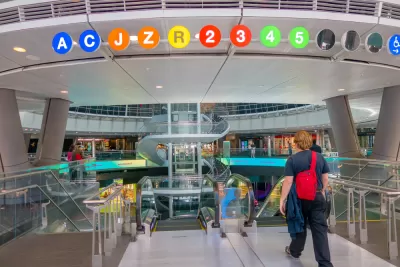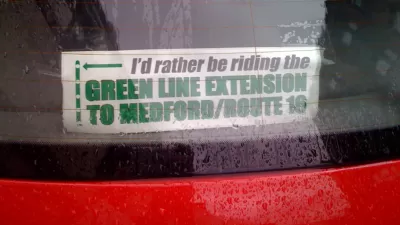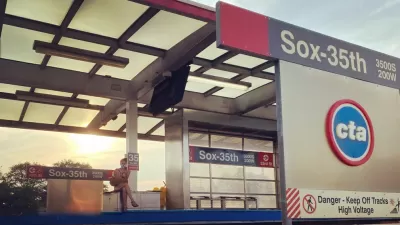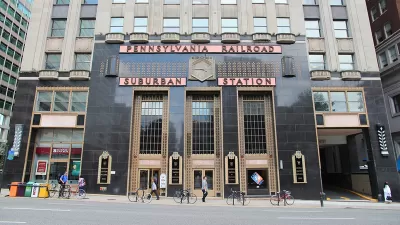The Eno Center for Transportation is answering long-overdue calls for more information about the well documented costs of transit investments in the United States.

The Eno Center for Transportation recently launched a project to explore questions about why transit investments cost so much more in the United States than they do around the world, first convening a high-level advisory panel to start to frame the assumptions and questions that will determine the direction on the project. Eno will soon begin several detailed case studies of emblematic projects in the United States and abroad.
Robert Puentes writes to explain the goals of the project:
In the end, this research and resulting policy recommendations will change the current national conversation about systemic problems to opportunities for better mass transit project delivery. It will raise the level of discourse by shifting from idiosyncratic anecdotes to comprehensive national and international data. And it will directly inform federal policymakers as they pursue a reform-minded reauthorization, as well as helping state and local actors invest in transit networks to grow local their economies, reduce greenhouse gases from transportation, and connect people to opportunity.
The new project seems to finally respond to a recent wave of questions about the lack of scientific and academic inquiry into the country's exorbitantly high transit construction costs. The conversation owes its existence to the work of Alon Levy, specifically with reference to the Second Avenue Subway in New York City.
FULL STORY: Eno Project Seeks to Understand Transit Costs/Delivery

Maui's Vacation Rental Debate Turns Ugly
Verbal attacks, misinformation campaigns and fistfights plague a high-stakes debate to convert thousands of vacation rentals into long-term housing.

Planetizen Federal Action Tracker
A weekly monitor of how Trump’s orders and actions are impacting planners and planning in America.

In Urban Planning, AI Prompting Could be the New Design Thinking
Creativity has long been key to great urban design. What if we see AI as our new creative partner?

King County Supportive Housing Program Offers Hope for Unhoused Residents
The county is taking a ‘Housing First’ approach that prioritizes getting people into housing, then offering wraparound supportive services.

Researchers Use AI to Get Clearer Picture of US Housing
Analysts are using artificial intelligence to supercharge their research by allowing them to comb through data faster. Though these AI tools can be error prone, they save time and housing researchers are optimistic about the future.

Making Shared Micromobility More Inclusive
Cities and shared mobility system operators can do more to include people with disabilities in planning and operations, per a new report.
Urban Design for Planners 1: Software Tools
This six-course series explores essential urban design concepts using open source software and equips planners with the tools they need to participate fully in the urban design process.
Planning for Universal Design
Learn the tools for implementing Universal Design in planning regulations.
planning NEXT
Appalachian Highlands Housing Partners
Mpact (founded as Rail~Volution)
City of Camden Redevelopment Agency
City of Astoria
City of Portland
City of Laramie





























